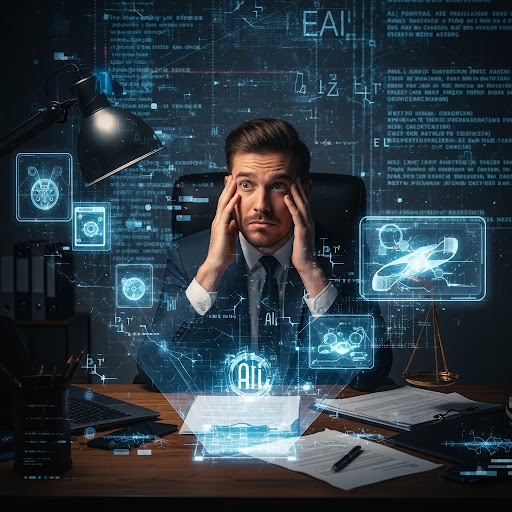The use of ChatGPT and other AI tools by lawyers has led to a series of scandals in US courts, where attorneys submitted documents with fictitious legal precedents created by artificial intelligence.

G. Ostrov
The legal industry is facing a serious problem: attorneys across the country have begun using ChatGPT and other artificial intelligence tools to prepare court documents, leading to the submission of papers with completely fabricated court cases and precedents.
Notable Sanctions Cases
One of the most high-profile cases occurred in New York, where a federal judge imposed $5,000 fines on a group of lawyers after ChatGPT was blamed for their submission of fictitious legal research to support an aviation injury claim. One of the lawyers admitted in court filings that he used an AI program that "hallucinated" the cases and apologized for what he called an inadvertent mistake.
Another large law firm was forced to explain itself to a judge for submitting a court filing with made-up citations generated by an artificial intelligence chatbot. Such incidents are becoming increasingly common despite judicial warnings and imposed sanctions.
Growing Problem
Experts predict that the problem's only going to get worse. Despite the mounting pile of sanctions, public embarrassment, and judicial warnings, attorneys continue to submit AI-generated hallucinations to courts. This happens because many lawyers fail to verify information generated by artificial intelligence.
The problem is particularly acute in civil proceedings, where lawyers relied on ChatGPT and it made the cases up. When cited court decisions cannot be found in legal archives, it raises serious questions from judges.
Consequences for the Profession
Some attorneys may face not only fines but could even be disbarred after using information "hallucinated" by the generative artificial intelligence tool. Judges are increasingly demanding explanations from lawyers about their use of AI tools and insisting on thorough verification of all generated information.
This disturbing trend has become a wake-up call for the legal profession, highlighting the need for a more cautious approach to using artificial intelligence technologies in legal practice.
If you have any issues, contact us, we'll help you quickly and professionally!




